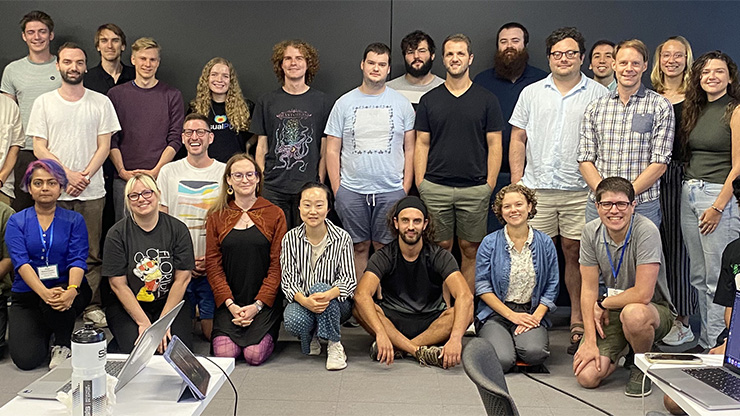Careers in Applied Mathematics
New application areas are constantly being discovered while established techniques are being applied in new ways and in emerging fields. Consequently, a wide variety of career opportunities are open to people with mathematical talent and training.
Why are careers in STEM important?
Mathematical careers in business, industry, and government continue to evolve and diversify. As new application areas are discovered and established techniques are applied in new ways, a wide variety of career opportunities have become available to people with talent and training in the mathematical sciences.

Why are careers in STEM important?
Hear From Mathematical Scientists Working in Industry
Want to learn more about careers in the mathematical sciences and related fields? Read the profiles of professional mathematicians and computational scientists to learn what type of jobs could be in your future, get advice, watch video interviews, and more!
Read the SIAM Careers BrochureWhere Can You Make an Impact?
Mathematics plays a major role in the bottom line of industrial organizations and helps companies perform better in today’s data-driven marketplace. Many different types of organizations hire mathematicians, computational scientists, and data scientists. To find out where you can make an impact, search the websites of organizations and corporations that interest you to learn more about their location(s), mission statement and objectives, history, and job postings. Gain experience through internships and work-study opportunities to help you determine your personal workplace preferences when it comes to things like nonprofit or for-profit, large or small, working independently or on a team, and how much customer contact you prefer to have.
What Kinds of Problems Might You Work on?
What’s Out There for Someone with Your Talents, Interests, and Background?
-
Growing Disciplines to Consider and Look into More Closely:
-
Other Areas in Which Mathematicians Work:
How Do You Get Started?
-
Choose a major in the mathematical sciences
Consider degree programs that require mathematical and computational skills, such as engineering, life science fields, public health sciences, computer and information sciences, statistical sciences, financial mathematics, earth sciences, and physical sciences. Pairing math with a minor in any of these degrees can be a powerful combination.
-
Explore college/university career resources
-
Explore internships, summer jobs, industrial research opportunities, and work-study
-
Build a network of contacts
-
Practice communication
-
Be open to all sorts of jobs
-
Are You Ready?
Possible Job Titles for People with Applied Math and Computational and Data Science Backgrounds and Education
Get Involved
Stay Up-to-Date with Email Alerts
Sign up for our monthly newsletter and emails about other topics of your choosing.











